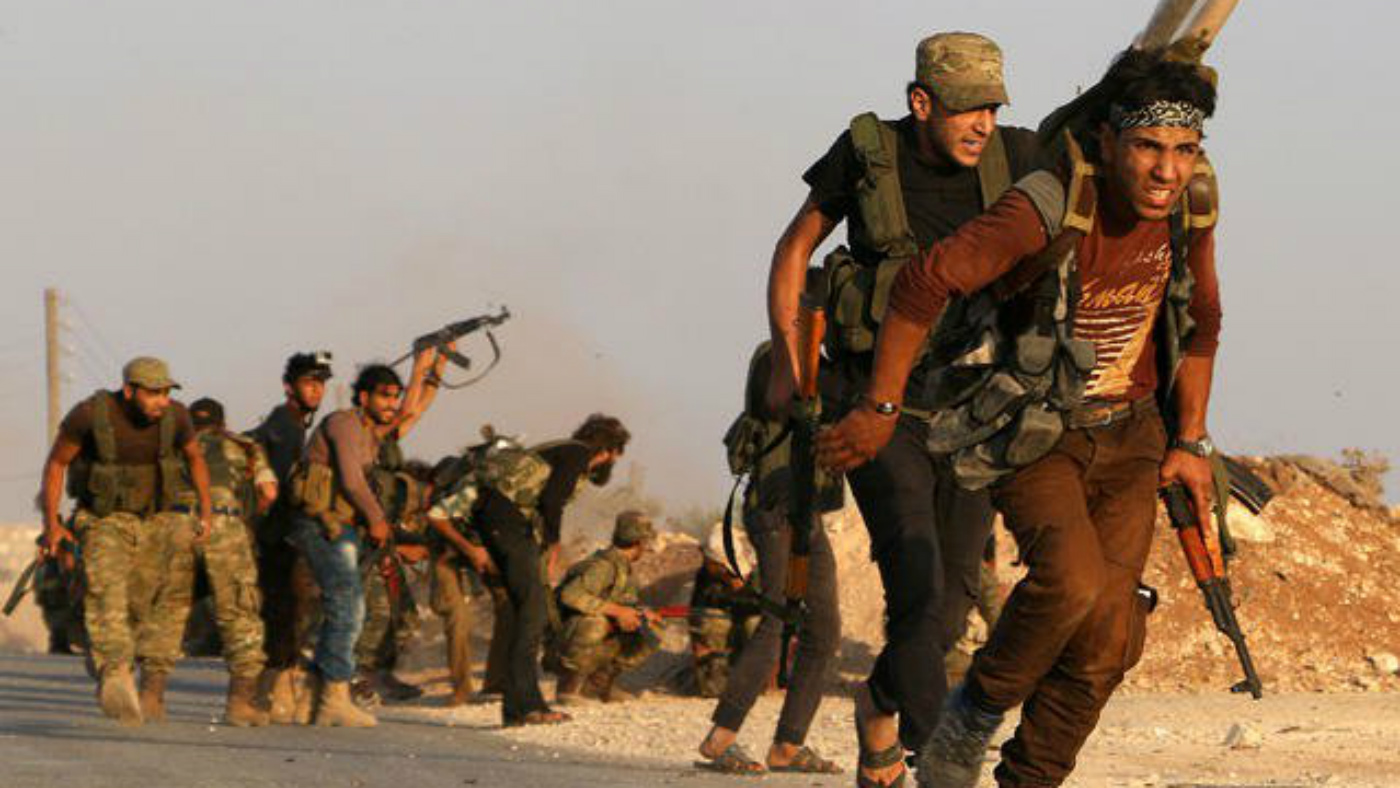UK suspends Syria aid programme amid questions over funds ‘paid to jihadis’
BBC claims cash earmarked for civilian police force was handed to extremists

A free daily email with the biggest news stories of the day – and the best features from TheWeek.com
You are now subscribed
Your newsletter sign-up was successful
The UK has suspended a foreign aid project to support community policing in Syria amid claims that money paid to a Syrian contractor was then handed to jihadist extremists.
A BBC Panorama investigation claims that British taxpayers’ cash was diverted to Islamic militants and that officers from a UK-backed police force in Syria worked with courts carrying out brutal sentences.
Adam Smith International, the British company running the project, says only $1,800 (£1,330) of $20m (£15m) in funding unwittingly fell into the hands of Free Syrian Police force members linked to extremists, and that the cash was not British money but rather from other state donors, The Observer reports.
The Week
Escape your echo chamber. Get the facts behind the news, plus analysis from multiple perspectives.

Sign up for The Week's Free Newsletters
From our morning news briefing to a weekly Good News Newsletter, get the best of The Week delivered directly to your inbox.
From our morning news briefing to a weekly Good News Newsletter, get the best of The Week delivered directly to your inbox.
The suspension of the project comes as Russian jets bombed residential areas in rebel-held Eastern Ghouta, on the outskirts of Damascus, killing at least 27 people and injuring dozens more, according to Reuters. At least 193 civilians, including 44 children, have died in three weeks of Syrian government raids and artillery fire on the area, the Britain-based Syrian Observatory for Human Rights says.
“Three weeks of ferocious bombardment of Syria’s Eastern Ghouta have crushed illusions of a lasting truce in the rebel enclave, which Damascus appears determined to recapture at all costs,” the Daily Mail says.
An estimated 400,000 people have been killed since the country’s civil war began in 2011, according to a CNN report in October.
The Eastern Ghouta region “has been besieged by army troops since 2013 in an attempt to force the rebel enclave to submission”, Reuters says.
A free daily email with the biggest news stories of the day – and the best features from TheWeek.com
The UN says a further 400,000 civilians in the region now face “complete catastrophe” because aid deliveries by the Syrian government have been blocked, while hundreds of people who need urgent medical evacuation have not been allowed outside the enclave, reports Abu Dhabi-based news service The National.
-
 The 8 best TV shows of the 1960s
The 8 best TV shows of the 1960sThe standout shows of this decade take viewers from outer space to the Wild West
-
 Microdramas are booming
Microdramas are boomingUnder the radar Scroll to watch a whole movie
-
 The Olympic timekeepers keeping the Games on track
The Olympic timekeepers keeping the Games on trackUnder the Radar Swiss watchmaking giant Omega has been at the finish line of every Olympic Games for nearly 100 years
-
 Epstein files topple law CEO, roil UK government
Epstein files topple law CEO, roil UK governmentSpeed Read Peter Mandelson, Britain’s former ambassador to the US, is caught up in the scandal
-
 Iran and US prepare to meet after skirmishes
Iran and US prepare to meet after skirmishesSpeed Read The incident comes amid heightened tensions in the Middle East
-
 Syria’s Kurds: abandoned by their US ally
Syria’s Kurds: abandoned by their US allyTalking Point Ahmed al-Sharaa’s lightning offensive against Syrian Kurdistan belies his promise to respect the country’s ethnic minorities
-
 Israel retrieves final hostage’s body from Gaza
Israel retrieves final hostage’s body from GazaSpeed Read The 24-year-old police officer was killed during the initial Hamas attack
-
 China’s Xi targets top general in growing purge
China’s Xi targets top general in growing purgeSpeed Read Zhang Youxia is being investigated over ‘grave violations’ of the law
-
 Syria’s Islamic State problem
Syria’s Islamic State problemIn The Spotlight Fragile security in prison camps leads to escape of IS fighters
-
 Panama and Canada are negotiating over a crucial copper mine
Panama and Canada are negotiating over a crucial copper mineIn the Spotlight Panama is set to make a final decision on the mine this summer
-
 Why Greenland’s natural resources are nearly impossible to mine
Why Greenland’s natural resources are nearly impossible to mineThe Explainer The country’s natural landscape makes the task extremely difficult